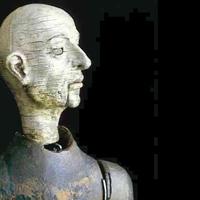
Dec 27, 2018
As legend goes, in 1562, King Philip II needed a miracle, so he commissioned one from a highly-skilled clockmaker. In this short, a king's deal with God leads to an intricate mechanical creation, and Jad heads to the Smithsonian to investigate.
When the 17-year-old crown prince of Spain, Don Carlos, fell down a set of stairs in 1562, he threw his whole country into a state of uncertainty about the future. Especially his father, King Philip II, who despite being the most powerful man in the world, was helpless in the face of his heir's terrible head wound. When none of the leading remedies of the day--bleeding, blistering, purging, or drilling--helped, the king enlisted the help of a relic...the corpse of a local holy man who had died 100 years earlier. Then, Philip II promised that if God saved his son, he'd repay him with a miracle of his own.
Elizabeth King, a professor emerita at Virginia Commonwealth University, describes how--according to legend--Philip II held up his end of the bargain with the help of a renowned clockmaker and an intricate invention. Jad and Latif head to the Smithsonian to meet curator Carlene E. Stephens, who shows them the inner workings of a nearly 450-year-old monkbot.
This episode was reported by Latif Nasser.
In the time since this episode was first produced, Elizabeth King has written a book about the clockwork monk. More details can be found at automatonmonk.com.
Support Radiolab today at Radiolab.org/donate.